The massive physical destruction in the wake of the 2010 earthquake, including the destruction of governmental buildings, equipment, and loss of personnel, and the continued lack of fundamental infrastructure throughout the government, severely limited the government’s ability to function in many areas, including in areas of law enforcement, social services and border control. This had a similarly limiting effect upon the government’s ability to address trafficking in persons. For these reasons, Haiti remains a Special Case for the sixth consecutive year. The extreme impact of the earthquake on the operational capacity of the Haitian government persisted throughout 2010 and into 2011. Twelve out of the 13 ministries collapsed in the earthquake, none of which have been rebuilt. Hundreds of civil servants and technocrats were killed, taking with them institutional knowledge and experience, and files were lost or destroyed. The Haitian government’s ministries operated out of tents and in overcrowded makeshift buildings. Although Haiti has a significant child trafficking problem, the Haitian National Police Brigade for Protection of Minors (BPM), responsible for investigating crimes against children has a minimal staff of 35 for the entire country, and lacks vehicles or investigational materials to inspect childcare facilities around the country. Border patrol lacks capacity to monitor the four official border crossings effectively, let alone the entire territorial border. Finally, the justice system is largely non-functional, as detention backlogs go back years, and few cases advance without some form of bribes or political pressure. The slow pace of reconstruction after the earthquake and the lack of government infrastructure obstructed basic government efforts to address trafficking in the country.
The following background and recommendations are provided to guide government officials and organizations working on anti-trafficking initiatives in Haiti.
Scope and Magnitude: Haiti is a source, transit, and destination country for men, women, and children subjected to forced labor and sex trafficking. The Haitian National Police and local NGOs reported an increase in alleged cases of forced labor and sex trafficking of children and adults since the earthquake. Young children without family support or secure housing appear to be increasingly at risk. The majority of trafficking cases are found among the estimated 173,000 to 225,000 restaveks —the term for the practice of child domestic servitude—in Haiti. The majority of children become restaveks when recruiters arrange for them to live with families in other cities and towns in the hope of going to school. Restaveks are treated differently from other non-biological children living in households; in addition to involuntary servitude,restaveks are particularly vulnerable to beatings, sexual assaults, and other abuses by family members in the homes in which they are residing. Restaveks are often dismissed when they become teenagers or difficult to control. Dismissed and runaway restaveks make up a significant proportion of the large population of street children, who frequently are subjected to sex trafficking or street crime by violent criminal gangs. Since the earthquake, local shelters have received a record number of restaveks. Many are also living in internally displaced persons camps.
Representatives from NGOs monitoring the Haitian-Dominican border reported that children frequently cross the border illegally, often in the company of an adult who is not the child’s parent or guardian. This adult is generally paid approximately three dollars to pretend to be the child’s parent until they get to the other side of the border. Some of these children are taken to be reunited with parents working in the Dominican Republic, but others are believed to be going to work in organized begging rings or in domestic servitude. Haitian men, women, and children also are subjected to forced labor and sex trafficking in the Dominican Republic, other Caribbean countries, the United States, and South America.
Government Efforts: In a positive step, Haitian officials recognized that human trafficking, including the exploitation of restavek children, is a serious problem in the country; however, the lack of legislation prohibiting all forms of trafficking was a major obstacle to progress. The absence of legislation also contributed to confusion among elements of the Haitian government and some of its international donors among the crimes of human smuggling, human trafficking, and illegal adoption. Legislation criminalizing all forms of human trafficking has been pending in Parliament for several years. A draft bill on trafficking has been presented to Parliament for consideration in the next session, which is expected to occur near the end of the reporting period. The Haitian justice system did not make advances in prosecuting traffickers during the reporting period. The government did not report any investigations, prosecutions or convictions of trafficking offenders in Haiti. The BPM was severely understaffed and lacking in resources such as vehicles and computers, like many Haitian National Police units. The BPM, however, did refer cases, including cases of child domestic servitude, to the prosecutor’s office, where they often languished as part of Haiti’s large case backlog. The Haitian National Police provided a handbook for police cadets, written in collaboration with Interpol, on sex trafficking.
The government lacked formal victim identification and assistance policies and resources. Shelter services for adult trafficking victims did not exist. The government’s social welfare agency worked well with NGOs to identify and refer some child victims to donor-funded NGOs who provided shelter, food, medical, and psychosocial support. One NGO, with international donor support, screened approximately 14,000 children during the reporting period and registered 200 of them as potential victims of child trafficking. The children were transferred into the social welfare agency’s custody, and over 100 of them were reunited with their families. Haiti’s border with the Dominican Republic was not well-monitored, but at the four designated border crossings, Haitian officers worked with NGO child protection officers (who have been seconded to the police) to screen children passing through the border for possible trafficking. In December 2010, police stopped a truck with four men and seven children in a suspected trafficking situation and worked with the NGO to reunite the children with their families.
Prevention efforts have been largely NGO-driven. The government did not register all births immediately and did not keep statistics concerning the number of births unregistered each year, increasing children’s vulnerability to human trafficking. Haiti is not a popular destination for international child sex tourism; however, there were many foreign nationals in the country for non-tourist purposes, and there were some incidents of foreigners procuring child commercial sex acts. The government of Haiti worked with the Canadian government to deport a child rapist to Canada for prosecution.
A divergent definition of trafficking in persons within the NGO community further hindered coordinated anti-trafficking strategies. There have been reports of duplication of anti-trafficking efforts by international organizations unaware of local mechanisms already in place.
Recommendations for Haiti: Enact legislation criminalizing sex trafficking and all forms of forced labor, including domestic servitude, with penalties that are proportionate to the seriousness of the crime committed; in partnership with NGOs, adopt and employ formal procedures to guide officials in proactive victim identification and referral of victims to available services; provide in-kind support for victim services; consider partnerships with NGOs to establish and support community based social workers as protection and prevention measures; and improve access to quality education for all children.











































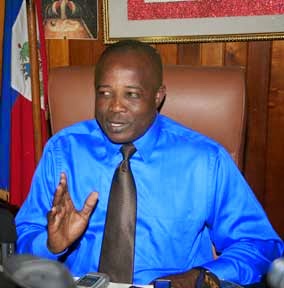

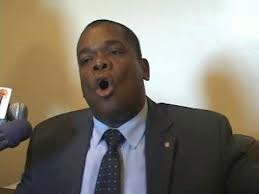
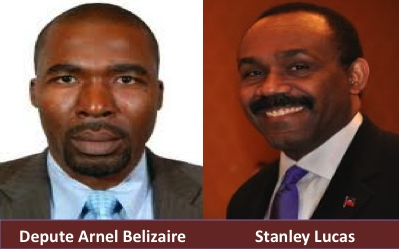













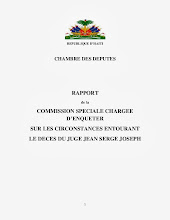








































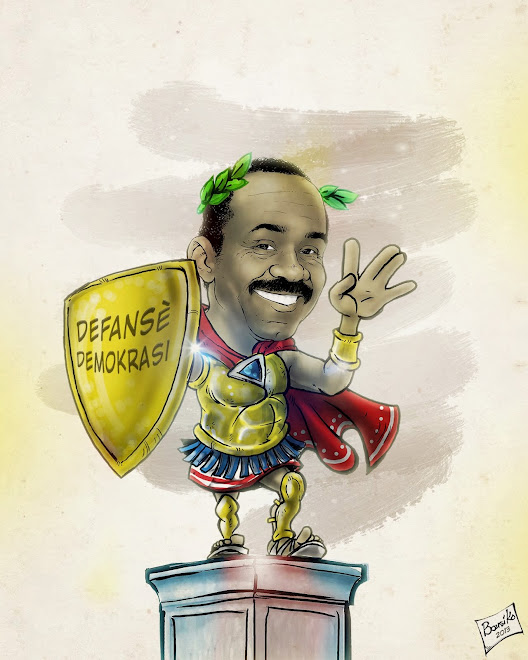



















-3.jpg)


.jpg)





.jpg)











.jpg)
.jpg)
.jpg)
.jpg)
.jpg)
.jpg)





































































